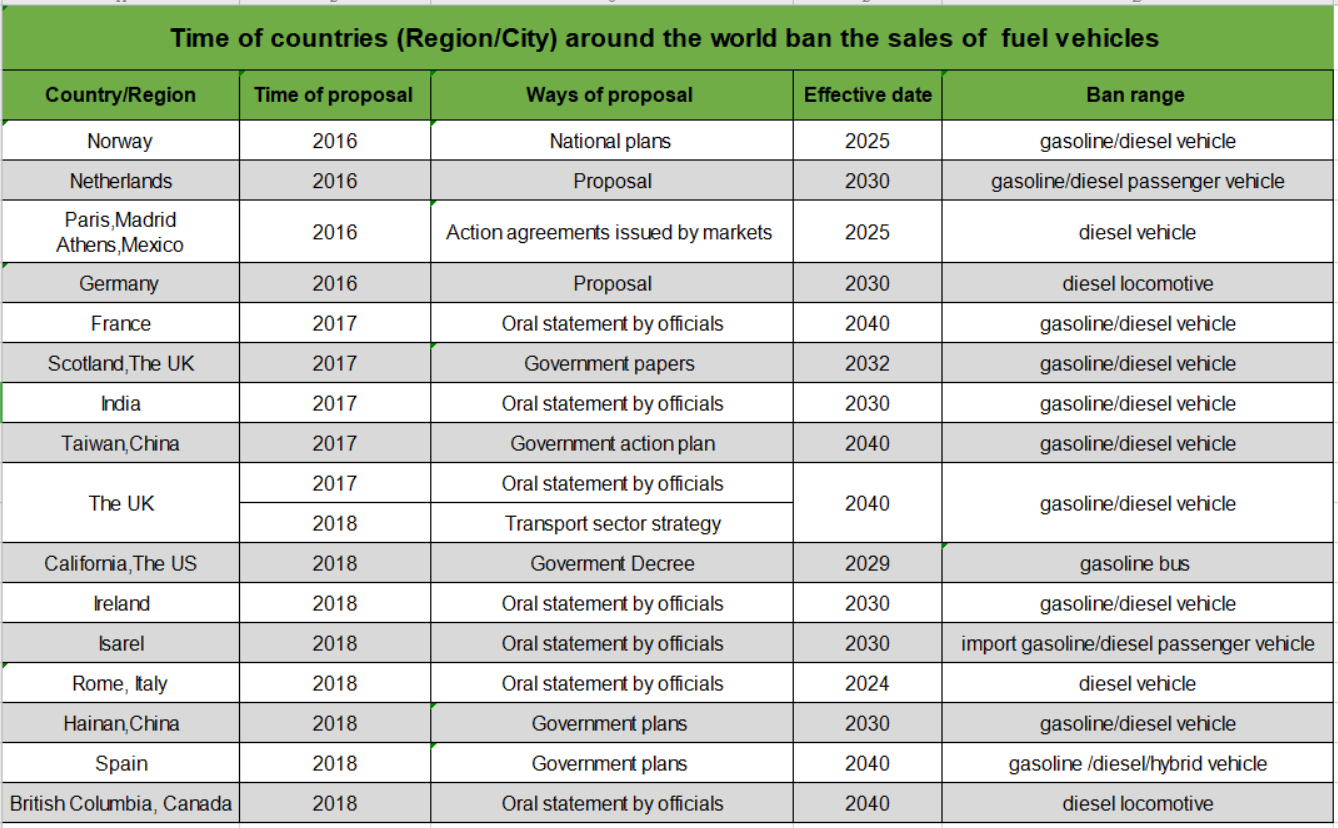One of the biggest news in the automobile industry recently was the impending ban on the sale of fuel (gasoline/diesel) vehicles . With more and more brands announcing official timetables to stop production or sale of fuel vehicles, the policy has taken on a devastating meaning for those automakers whose new energy technology is not yet mature or even lacks it.
Below are the timetable of countries (Region/City) around the world ban the sales of fuel vehicles

How about the plan of automobile enterprise ?
Many famous automobile companies established their own plan to follow the trend to go electrical
Audi plans to stop producing gas-powered cars by 2033
Audi’s new models for the global market will be fully EV from the year 2026. Audi plans to phase out the production of internal combustion engines by 2033, their goal is to achieve zero emission by 2050 at the latest.
Honda plans to stop selling gas-powered cars altogether by 2040.
Nissan announced that it will stop selling pure fuel vehicles, and provide PHEV and BEV only in China market.
Jaguar has announced that it will switch to BEV brand by 2025, ending its fuel vehicles production;
Volvo also announced that it will be fully electrified by 2030, thus it will sell electric vehicles only at that time.
Mercedes-Benz has announced that it will stop selling all of its conventional fuel cars until 2022, offering only hybrid or pure electric versions of all its models. Smart will also be electrified by 2022.
GM says it will build only electric cars by 2035 and be carbon neutrality by 2040.
Toyota plans to make new energy vehicles quantities for half of its global sales by 2025.
BMW plans to produce 7 million new energy vehicles by 2030, two-thirds of which will be BEV.
Bentley plans to launch its first BEV by 2025. By 2026, the Bentley lineup will consist of PHEV and BEV only. By 2030, Bentley will be fully electrified.
How about China ?
Chinese traditional automobile companies also follow the step to go electric:
As early as 2018, BAIC said that except for special purpose vehicles and special vehicles, it would stop selling its own brand fuel vehicles in Beijing in 2020 and nationwide in 2025. It makes an example for the national fuel vehicle enterprises.
Chang’an has already announced that it will stop selling traditional energy vehicles in 2025 and plans to launch 21 new BEVs and 12 PHEVs.
WEEYU as an EV charger manufacturer will continue to keep an eye on the policies of vehicles, especially electric vehicles. We will keep improving chargers’ quality, developing more functions, meeting various requirements of chargers.


